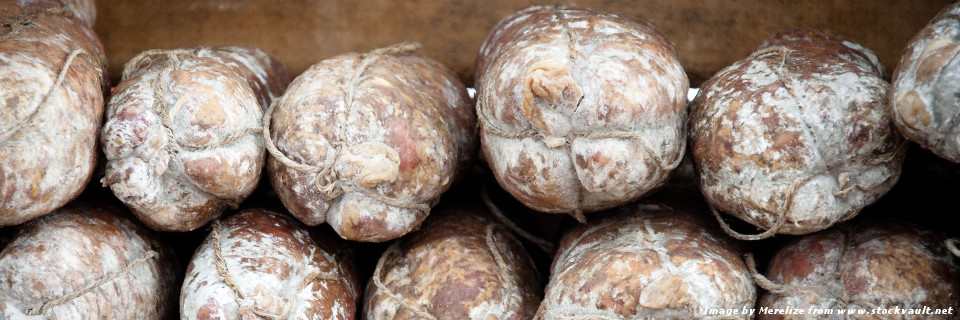Ricerca
Behaviour of Escherichia coli O157 (VTEC), Salmonella Typhimurium and Listeria monocytogenes during the manufacture, ripening and shelf life of low fat salami

26/01/2017
Elena Dalzini a, Elena Cosciani-Cunico a, Valentina Bernini b, Barbara Bertasi c, Marina-Nadia Losio c, Paolo Daminelli a, Giorgio Varisco a
a National Reference Centre for Emerging Risk in Food Safety, Istituto Zooprofilattico Sperimentale della Lombardia e dell'Emilia Romagna "B. Ubertini",
Brescia, Italy
b Department of Food Science, University of Parma, Parco Area delle Scienze 48/A, 43124, Parma, Italy
c Department of Food Microbiology, Istituto Zooprofilattico Sperimentale della Lombardia e dell'Emilia Romagna "B. Ubertini", Brescia, Italy
Food Control 47 (2015) 306-311
© 2014 Elsevier Ltd. The aim of this study was to evaluate the behaviour of Escherichia coli, Salmonella Typhimurium and Listeria monocytogenes in an innovative semi-dry reduced fat Italian salami. The product is made from pork meat and it is characterized by less than 20% fat, lactose-, gluten- and milk protein-free. It is developed in Italy according to EC Regulation No. 1924/2006 "on nutrition and health claims made on foods". Multi-strain cocktails of each pathogen were used to inoculate (5logcfug-1) separately the salami batter. During the manufacture and ripening, E. coli, S. Typhimurium, and L. monocytogenes decreased by 2.5, 1.65 and 0.5logcfug-1 respectively from the initial inoculated levels. Experimental data indicated that, during the shelf life in a condition of moderate thermal abuse (8-12°C), the portioned and vacuum packed low fat salami are not able to support the growth of L. monocytogenes.

